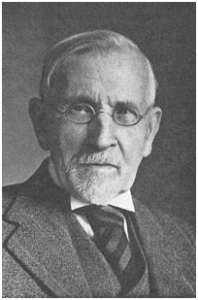 So, we now know the results of the referendum, and the government will have to decide how to proceed to the next stage of negotiations. I am talking, of course, not about 52:48 but about 58:42—in other words, the referendum on the junior hospital doctors’ contract.
So, we now know the results of the referendum, and the government will have to decide how to proceed to the next stage of negotiations. I am talking, of course, not about 52:48 but about 58:42—in other words, the referendum on the junior hospital doctors’ contract.
To understand the word “referendum” requires an understanding of the difference between the Latin constructs known as gerunds and gerundives and their English equivalents. Latin gerunds are neuter singular nouns formed from verbs by adding -ndum to the stem. In English, gerunds are verbal nouns ending in -ing. In Latin “legendum”, from the verb legere, to read, means “reading”, which is the English gerund, as in “he loves reading”. Since gerunds are nouns, preceding pronouns should take the possessive form: “I saw him reading” (present participle), but “I enjoyed his reading [of that poem]” (gerund).
A Latin gerundive, on the other hand, has the same form as a gerund, but is used as an adjective and can take any number (singular or plural) and gender, for example, legendus, legenda, legendum, respectively masculine, feminine, and neuter singulars. Liber legendus is a book to be read, and hic libri legendi sunt means these books must be read, or here’s your reading list. As the Oxford English Dictionary (OED) says, a gerundive expresses the idea of necessity or fitness. Amanda is a girl who is lovable or deserves to be loved (amare, to love); Miranda one to be admired, revered, or held in awe (mirari). Tremendous is from the gerundive of tremere, to tremble; horrendous is from horrere, to bristle; nefandous (abominable) from fari, to speak; and stupendous from stupēre, to be stunned.
Some English words of this type have come unchanged from the original Latin. The OED lists about 60 of them, from gerundives or gerunds, in a ratio of about two to one. About 25 are Latin phrases, several of which are found in legal terminology, such as capias ad respondendum, to enforce attendance at court. The rest are single words, many from postclassical Latin, some of them unattested in the original language, and several of them obsolete. A memorandum specifies something that needs to be remembered. The pudendum is something of which one should be ashamed (pudēre); the plural pudenda is used as a singular. An agendum (plural agenda) is something that should be done, and so an agenda (singular) is [a list of] things that need to be done (agere, to do).

(1867–1957)
In one case only is the dictionary unsure about whether the word comes from a gerund or a gerundive—referendum. The uncertainty seems to have come from William Alexander Craigie (picture), since it appeared in the first edition of the OED, the relevant fascicle of which, Ree–Reign, published in March 1905, was his responsibility.
The IndoEuropean root BHER meant to carry, giving Greek φέρειν and Latin ferre. To refer is literally to carry back and therefore, among other things, to turn or appeal to, to consult. A referendum is therefore an act of consultation, which sounds like a gerund to me. If it is a gerund, it has no plural in Latin, and the English plural would be referendums. If it’s a gerundive, the plural could be referenda, although referendums would do too, since English isn’t Latin.
On referring to the British National Corpus of words, “a 100 million word collection of samples of written and spoken language from a wide range of sources, designed to represent a wide cross-section of British English, both spoken and written, from the late twentieth century”, I found 1428 examples of the use of the word “referendum”, 83 of “referendums”, and 30 of “referenda”. So, usage suggests “referendums”, a view that is supported by the latest edition of Fowler’s Dictionary of Modern English Usage. Another argument against “referenda” is that it would mean [a list of] things to be voted on, not different votes. And the word for a referendum in which more than two items or persons are being voted on is technically a preferendum.
I am not surprised that in their referendum the junior doctors voted against accepting the newly revised contract. Emboldened perhaps by 52:48, they’ve registered 58:42. They may feel confident about this, with the government seeking a new leader, the possibility of an immediate general election, and the likelihood of a cabinet reshuffle and a new secretary of state for health (SoSH) to deal with. The current SoSH, Jeremy Hunt, has said that the new contract will be gradually imposed, starting in October, but we shall have to wait and see.
Jeffrey Aronson is a clinical pharmacologist, working in the Centre for Evidence Based Medicine in Oxford’s Nuffield Department of Primary Care Health Sciences. He is also president emeritus of the British Pharmacological Society.
Competing interests: None declared.
